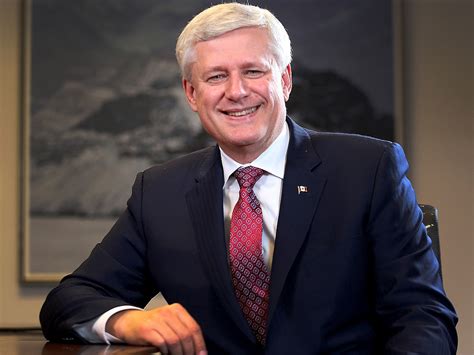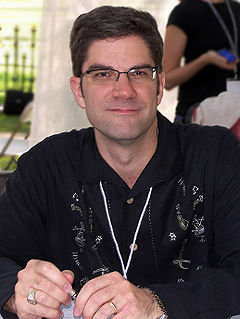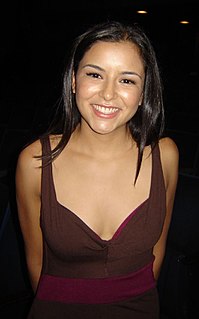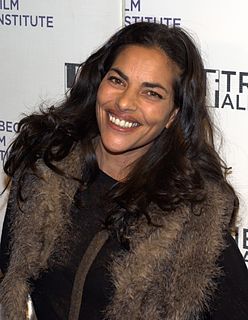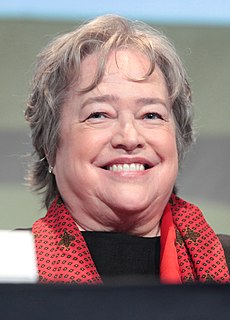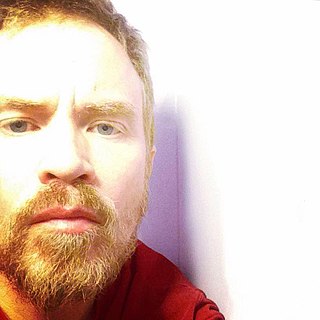A Quote by Noah Hawley
I did some feature work, then tried TV. I was always very aware that the only power that you have is the power of options. If the film industry dries up, then you focus on the TV or the books. For me, it was always about what story do I want to tell next?
Related Quotes
I've always loved theatre because it's so immediate. The challenge of it is that, career wise, it's easier to get traction in the industry if you do film and TV because the audience is larger, and because the work can be seen for a longer period of time. I did solid work in a series of regional and Off-Broadway shows, but the work I did on TV or film will have a longer life with a larger audience (and with services like Netflix). Ultimately, there's something intimate about TV, because the storytelling and the actors come home with the viewer. It can be powerful because of that.
No one forces me, or any other writer, to sell a film option on the books. If you don't want to run the risk that the filmmakers may adapt your work in a way you don't like, then you don't sell the option. You know when you sell it that they will have to make some changes, just because film and TV are different media than books.
If I wanted to do TV full-time, 'Breaking Bad' is definitely the type of project I would want to do. But TV is not my favorite thing in the world. I definitely want to focus on film. It's what I grew up loving. It's always been about movies, movies, movies, movies, movies. I really want to make great films.
And then afterwards I worked in advertising for a year which taught me about writing even when you don't want to (laughter) because there's never a moment that you want to write about an Erickson cell phone but you have to. And that's really important you know obviously for the...like if you really want to write, you have to write every day no matter how you feel or you know. And then, yeah, and then I ended up working in TV and then from TV into movies and then directing, so.
I've seen [Donald Trump] appear in a film or a TV show cameo or the tabloids, and he's a grotesquely distasteful human being and always has been, always made me want to take a shower. But other people fell in love with him as a reality star. So does that mean that the entertainment industry is doing something wrong? I think reality TV answered that question a long time ago: Yes, it's doing something terribly wrong. But there's some great reality TV, and I'm not bagging on it completely.
I've always been fascinated, obsessed even, with books and TV shows about unsolved murders, cold cases, forensic science, mysteries, and so on. Many times when I get inspiration for my work, it's from something in one of these books or TV shows, or perhaps some newspaper article about a specific case.
I always wanted to be an actor. I was one of those lucky kids - or cursed kids - who always knew what he wanted to do. My wife too. She's a ballet dancer, and she's known what she wanted to do since she was 5. My mother used to tell this story about how our TV set had been taken to be repaired, and back then, they took the set out of the console. So there was this empty console with an empty TV screen in it, and I would climb inside and be like, "I'm on TV!"
In film, it's up to the director to tell the story in whatever way he sees fit, and however you fit into that ultimate vision is where you fit in. So what you did on that stage, on that set, may not be what you ultimately see when you see the final product. And TV works so fast, it works so fast, it's just about product. The average TV show, one episode shoots eight, 10 days. That's it. You get three or four takes for a scene, and then it's over. But people do it for the money.
We're taught Lord Acton's axiom: all power corrupts, absolute power corrupts absolutely. I believed that when I started these books, but I don't believe it's always true any more. Power doesn't always corrupt. Power can cleanse. What I believe is always true about power is that power always reveals.
I can only tell you the kind of power I want, which is the power to persuade. But I do not want the power to tell other people what to do. Persuade assumes that the other person is going to make the decision. Especially as a writer and an activist, I want the power to put ideas and possibilities out there, but I understand that they will only work if they are freely chosen, so I don't want the power to dictate or to force the choice, ever.

